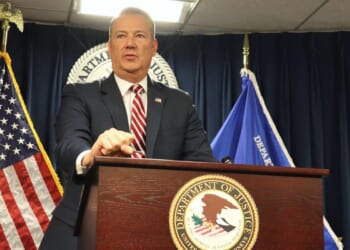Vice President JD Vance, should he make the necessary strategic moves, could effectively clinch the 2028 Republican presidential nomination before a single vote is cast. But this is hardly a done deal.
His position as the sitting Vice President gives him a substantial advantage. Since 1960, eight vice presidents have run for their party’s nomination, and seven of them secured it. Only Mike Pence, President Trump’s first VP, failed to do so. Of the seven who became nominees, three—Richard Nixon, George H.W. Bush, and Joe Biden—went on to win the presidency.
Historically, candidates in Vance’s position have strengthened their chances by investing early in Iowa, New Hampshire, Nevada, and South Carolina. Building goodwill in these states often translates into early delegate support.
His team needs to cultivate relationships with Republican leaders and support local, state, and federal candidates in the 2025 and 2026 election cycles. Building goodwill and alliances in these states, particularly Iowa, where the first votes are cast, is critical. Many of the political players in these states will go on to be delegates in 2028, and their early support can shape the trajectory of the race. (RELATED: Vance Talks How To Confront Universities That Allow ‘Incitements To Violence’ Against The Right)
In parallel, Vance is already building a formidable national fundraising machine. As chairman of the Republican National Committee’s finance operation, the first time a sitting Vice President has held such a position, he has demonstrated an ability to energize donors and generate record-breaking results. At a New York City fundraiser, he raised $2 million in one night, with some couples contributing $250,000. In Nantucket, he brought in $3 million and set a new GOP record for the island. A day of events in Jackson Hole and Big Sky added another $4 million to the RNC’s totals. Under his leadership, the party has raised over $96 million as of mid-2025, pulling ahead of the DNC in both fundraising and cash on hand.
His fundraising numbers suggest the potential for a national campaign and signal growing influence with key GOP donors. However, sustaining that level of enthusiasm over multiple years will be a challenge. The ability to raise money at this level gives him a strategic advantage not just in campaign operations but in cultivating political loyalty and controlling the party infrastructure.
To build on this momentum, Vice President Vance should prioritize the formation of individual state-level PACs, compliant with state campaign finance laws. These PACs would enable his team to support targeted candidates across state and local races, while simultaneously building political loyalty and identifying grassroots leaders. Importantly, these PACs should be created in accordance with the Federal Election Commission’s Advisory Opinion 2023-09, which clarified how federal officeholders may establish and interact with state-level political organizations.
Rather than limiting these efforts to just the early-voting states, Vance should strongly consider establishing PACs in all 50 states before the 2026 midterms. Doing so would allow him to support a broad range of down-ballot Republican candidates, assist state parties, and build relationships with key activists, donors, and elected officials in every corner of the country. This network would give him not only campaign infrastructure but also long-term political capital.
Once the early states are secured and financial operations are in full swing, the momentum could carry him through Super Tuesday, when a large number of delegates are awarded. With each win, his delegate count will build toward the threshold needed to secure the nomination outright and potentially before other contenders even gain traction.
If JD Vance continues his current trajectory of building early-state alliances, raising unprecedented sums, and forming PAC networks in accordance with FEC guidance, he may enter the 2028 primary season not just as a front-runner, but as the presumptive nominee.
Trey Trainor currently serves as Vice Chairman of the Federal Election Commission; he was nominated as a Commissioner by President Donald J. Trump and was confirmed by the U.S. Senate in 2020. He is board certified by the Texas Board of Legal Specialization in Legislative and Campaign Law and has practiced election law for over two decades. Jim Ellis is the founder of the Ellis Insight election analysis service.
The views and opinions expressed in this commentary are those of the author and do not reflect the official position of the Daily Caller News Foundation.
All content created by the Daily Caller News Foundation, an independent and nonpartisan newswire service, is available without charge to any legitimate news publisher that can provide a large audience. All republished articles must include our logo, our reporter’s byline and their DCNF affiliation. For any questions about our guidelines or partnering with us, please contact licensing@dailycallernewsfoundation.org.

![Scott Bessent Explains The Big Picture Everyone is Missing During the Shutdown [WATCH]](https://www.right2024.com/wp-content/uploads/2025/11/Scott-Bessent-Explains-The-Big-Picture-Everyone-is-Missing-During-350x250.jpg)













